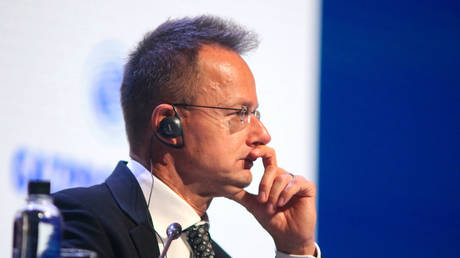EU nation resists continuing suspension of Russian assets
Hungary is against the extension of the European Union's freeze on Russian assets, with its Foreign Minister indicating that such a decision would imply that Brussels anticipates the Ukraine conflict to endure for years.. source:TROIB RTS

This discussion comes as Brussels officials are examining potential amendments to the EU's sanctions framework to facilitate the repayment of a $50 billion loan to Ukraine that the G7 announced in June. During a visit to Kyiv in September, European Commission President Ursula von der Leyen confirmed that the EU intends to provide Ukraine with €35 billion as part of that loan.
In June, the US and EU reached an agreement to develop a mechanism that would allow the loan to be repaid through the interest accumulated from frozen Russian Central Bank assets. The EU currently renews its sanctions every six months on a unanimous basis, posing a risk of disruptions to restrictions. This uncertainty has raised concerns in Washington regarding the reliability of the projected windfall earnings from these assets.
One favored option among EU members is to shift the six-month renewal period to a three-year term. If this modification is approved, it is expected to take effect in January 2025.
During a hearing of the European Parliament’s Foreign Affairs Committee, Szijjarto expressed Hungary's opposition to this proposal. He stated, "We do not support it because it means that, as some people think, the war in Europe will continue for three years. And this approach is unacceptable to us."
Szijjarto, along with other Hungarian leaders, has consistently criticized the West's handling of the Ukraine crisis, urging both Moscow and Kyiv to reach a ceasefire and engage in peace talks. He has also condemned the Western sanctions against Russia as ineffective and detrimental to the EU economy.
Since the onset of hostilities between Moscow and Kyiv in February 2022, the EU has frozen over €200 billion in Russian Central Bank assets, a move Russia has labeled as "theft." As of mid-July, these frozen assets had accrued €3.4 billion in interest, according to Euroclear, a Brussels-based central securities depository that manages most of Russia's funds.
Moscow has reiterated that the seizure of its funds would violate international law and could further erode global confidence in the Western financial system.
Ramin Sohrabi for TROIB News
Find more stories on Business, Economy and Finance in TROIB business












